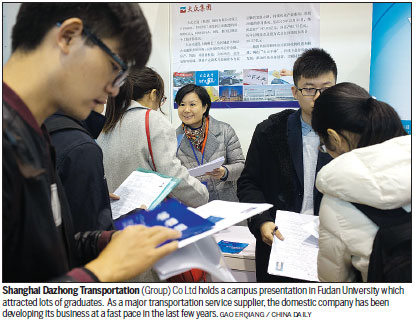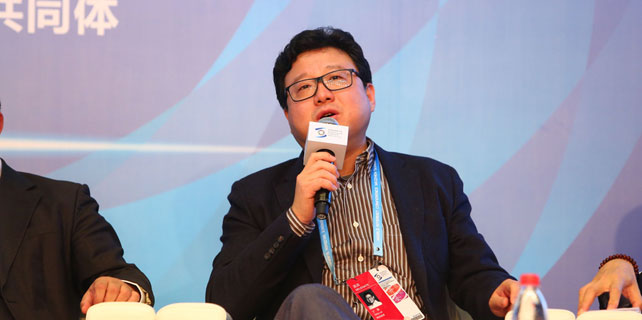The big talent migration

The Bain survey also discovered that high-calibre workers in mid to senior positions across most industries now find domestic companies to be a better bet, and this has in turn spurred Chinese employers to roll out more ambitious recruitment plans.
A survey by C9 League, a university coalition in China, suggested that Huawei Technologies, the country's major telecom equipment maker, was in 2016 the top employer of China's top graduates.
Domestic firms have also been quick to raid Western companies for their experienced technical talent and executives by offering dramatic pay increases - at times as much as 50 percent or higher, said John Zhang, a senior recruitment specialist at a US headhunting firm.
Xiao was one such person who was offered a generous remuneration package by her current Chinese employer. After factoring in the stock options and pay raise, her total income is now 60 percent higher than when she was at the US firm.
Chen Bairen, who quit his job last May as strategic consultant for a Hong Kong-headquartered bank before taking on a similar position in a domestic investment conglomerate, said that his salary almost doubled.
"I can't say I am not intrigued. Considering that banking is already one of the most well-paid industries, this new job indeed gave me a substantial boost to life quality," said Chen.
Retention challenges may force multinationals to consider pay increments as well, Zhang noted. However, based on the trend of salary increases, MNCs have been cautious about doing so over the past few years. In the meantime, domestic companies have been turning their focus to employee retention and acquisition so that they can build a strong portfolio of business leaders, according to Smith.
"The local entrepreneurial scene has also evolved and is no longer lagging behind MNCs. They have upped the ante in talent-development programs, and their fast-growing operations and brands present opportunities for China's homegrown talent to build something they can take pride in," said Zhang.
Career progression
Apart from payment, there are other factors in play, such as the proximity to the top.
Locals working in Chinese companies will naturally have a higher chance to take on roles at the top of the organization, and this is something that appeals to senior professionals who aspire to drive their own business initiatives instead of being part of a global hierarchy.
"The part I like about working at Chinese companies is the streamlined decision-making process," said Chang.
"If there is a really urgent matter, you can just have a quick conversation with the company's top executives and ask for a decision to be made quickly. In an MNC, it could take a month for a proposal to go through the management team."
While many foreign companies do encourage granting more autonomy to their local teams, their complicated reporting lines and communications inhibit that goodwill, said Bao Zheng, a former site manager at a US manufacturing firm and an independent human resource consultant.
Other factors include being challenged at work, things that Chen and Xiao said their Western companies could not provide. The duo said that the repetitive nature of their work at foreign companies was one of the reasons they decided to quit and that they are now able to experience a variety of roles with their Chinese employers, which in turn enables them to measure their career development.
Zhang added that some of the perks provided by MNCs, such as the opportunity to be posted to offices in foreign countries, have also lost their attractiveness as many Chinese professionals now view China as the best place to be in with regard to long-term career development. These individuals also view the quality of life in China's cosmopolitan cities to be on par or higher than their Western counterparts.
According to Bao, another challenge that MNCs face today is the perceived level of cronyism among their ranks, one that is a result of giving more power to the locals.
"In the West, one works for the job. In oriental cultures, one tends to work for the boss. When the expats were here, local staff worked very hard to win the favor of their foreign bosses. Now that these locals have taken on the roles of their bosses, cronyism is becoming more prevalent," said Bao.
"The Chinese leaders in these MNCs are more inclined to weed out dissidents, regardless of how competent they are. This results in a lack of talent, which in turn means that the organization is unable to effectively compete in the market. In the end, these MNCs continue to stagnant as their Chinese rivals develop and overtake them."
hewei@chinadaily.com.cn
















